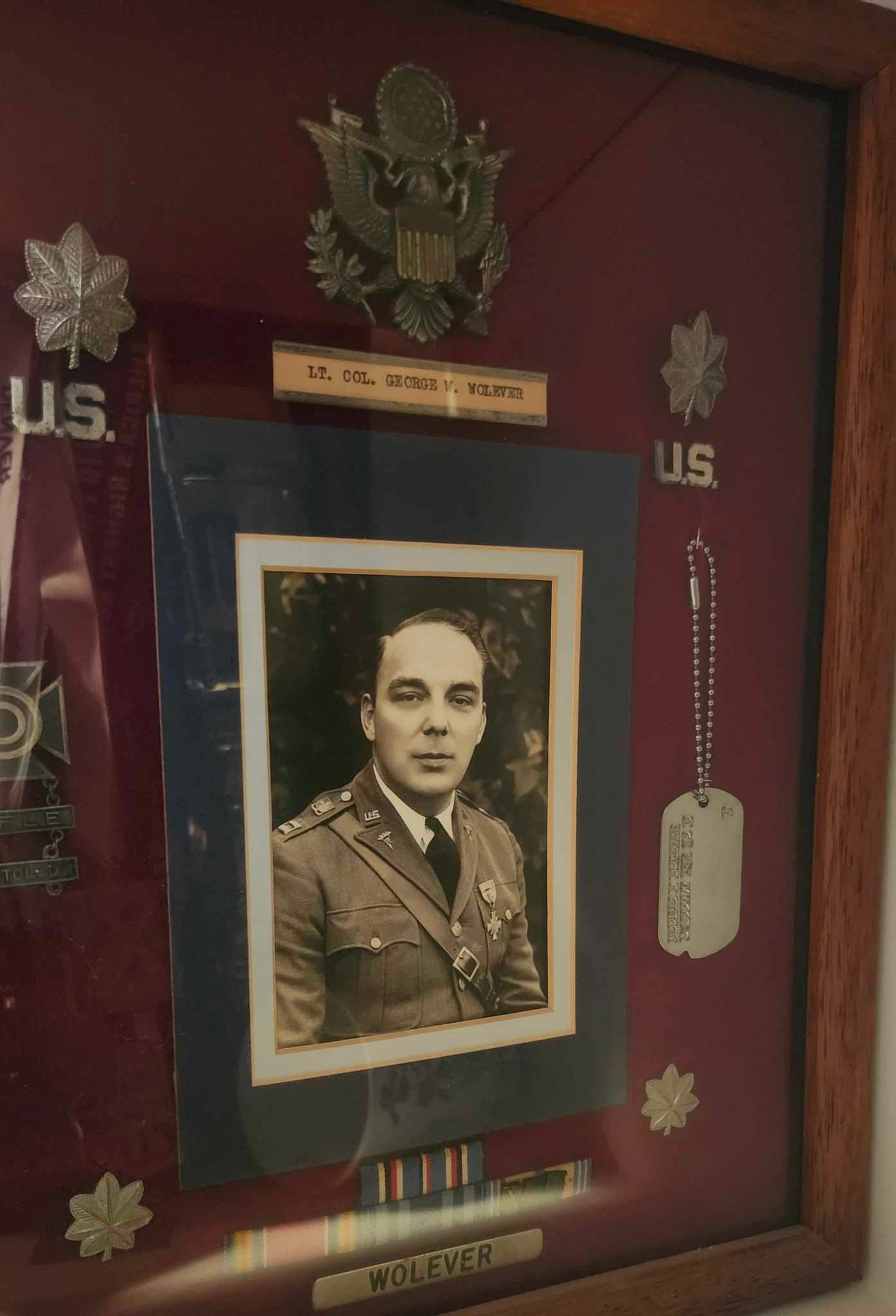What can grizzled ol' veterans teach us?
Among the wisdom is that words matter. Let's use them wisely.
How often do you stop and just chat with a veteran in line at the grocery store or a restaurant? You know who I’m talking about, they generally are wearing a baseball cap with their branch and unit insignia, most of em have a lot a hair on their face, and most of it grey.
My Grandfather, pictured above was in his WWII era uniform (I think, guess I gotta do some more research.) He enlisted in the Army before there was an Air Force because he liked horses and at Purdue, they still had a Calvary Unit with real horses. He retired after 38 years in the Air Force as a Lieutenant Colonel.
Not like the younger soldier like my Grandfather in this photo.
The grizzled old guy (and sometimes although rare-er, old gal), the kind that are hobbling a little and often at first glance are a little grumpy.
I’ve been chatting with them for decades, and almost all are interesting, fun, insightful and meaningful.
Started chatting with ol’ veterans, when I was a young officer in the Colorado Army National Guard and when I became a Company Commander, had a half dozen that were twice my age and still serving in the Guard under my Command.
Most take a long time to open up if ever, they’ve been dealing with young college grads for decades who are now their “Commanders” and from experience and wisdom they aren’t about ready to open up to what they saw overseas in combat.
This week I just so happened to chat with one waiting in a long line at Safeway because of the Kings Soopers strike in Colorado. We had a few minutes, so we chatted about service, helicopters, ‘Nam.
Not once did we mention “fighting”, “killing”, “war”, “boots on the ground”, “combat”, “anger”, “violence” and any other war related kinda words.
Grizzled ‘ol veterans are in no way monolithic, but as a mostly accurate stereotype they are humble, straightforward and modest, no matter their political affiliations.
They don’t use words of violence even though that’s what they trained for and if they served in combat that’s what they likely did on behalf of their country.
Neither should when we are describing our current divisions in our country, especially when describing others in another political party or who they voted for.
American’s are at their best, when we advocate for what we love, not what we hate, and that way we best serve American people and our Nation well.
Let’s take our citizenship seriously so that we can truly honor those who have served, and know those words of violence that veterans know so personally, do not belong on our civic dialogue about our fellow Americans. In that way our Veterans will know that they fought for something important.





My observation has been that it’s the young recruits and enlisted who are most gun-ho to talk about war, killing, fighting, and combat. Veterans, particularly combat veterans, are more likely to reminisce about camaraderie, faux pas they can chuckle about, and maybe places they’ve seen.